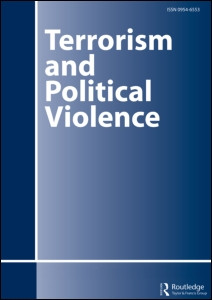
Here’s a NeMLA panel (it’s in Baltimore this coming March) panel that might interest some of our students —
Comparative Imperialisms and Transnational Violence (Panel NeMLA 2017)
Abstracts for papers are requsted for the panel “Comparative Imperialisms and Transnational Violence” at the 48th NeMLA Annual Convention, March 23-26, 2017, Baltimore, Maryland, USA.
Please follow this link to read the CFP on NeMLA webpage: https://www.cfplist.com/nemla/Home/S/16481
For abstract submission guidelines, please visit: http://www.buffalo.edu/nemla/convention/submit.html
You must submit your abstract through NeMLA online submission system by creating your user account at: https://www.cfplist.com/nemla/Home/Login
For detailed information about NeMLA 2017 convention, important deadlines, presenter policies and registration fee, please visit: http://www.buffalo.edu/nemla/convention.html
For any panel related question, please send an email: mazeem1@binghamton.edu
PANEL TITLE:
Comparative Imperialisms and Transnational Violence
DESCRIPTION:
This session explores the transformations in the United States’ imperial role as represented in the post-World War II and post 9/11 American fiction. Through its war on terrorism, the Empire dissolves the binary of insider and outsider, equating every presumed terrorist with an outsider (even if an American citizen) and every outsider with a suspect terrorist (even if an innocent). We theorize the contemporary Empire from the perspective of “comparative exceptionalisms” (Amy Kaplan) because unlike the individual wars the US has fought (against Philippines, Vietnam, Korea etc), war on terrorism invokes a transnational paradigm that empowers US to capture or kill any individual, irrespective of their nationality. We employ the paradigm of comparative imperialisms to reflect how various imperial tactics have converged to forge the new Empire fighting the war on terrorism. The comparison of imperialisms exposes the violence that constitutes the persistently expanding Empire. Through its drone strikes the United States has turned the area under surveillance into a panopticon, forcing the lives of the subjects into the sphere of biopolitics.
Coupled with Giorgio Agamben’s theorization of law of exception and homo sacer, and Judith Butler’s discussions of frames of war and violence, the framework of comparative imperialisms facilitates the study of the subjects divested of their human and legal rights, and reduced to homo sacer in various historical situations at places like Philippines, Japan, Vietnam, Iraq, Afghanistan, and Pakistan. In this context, the session seeks papers on American fiction that compare the conditions of the POW’s and colonial subjects in the wake of WWII with the prisoners of Guantanamo Bay and the victims of war on terrorism to engage in debates of United States’ creation of transnational sites of violence justified through exceptionalism, state of emergency, war on terrorism, and right of intervention.
The session connects the notions of exceptionalism, homo sacer, and comparative imperialisms to trace in the relevant American novels the transformations in the US imperial role as it emerged after WWII and 9/11 terrorist attacks. The US through its war on terrorism has transnationalized the scope of imperial violence effecting a state of emergency for both its citizens and noncitizens. The comparison of pre and post 9/11 imperial forms animates the violence that remains unquestioned in the dominant imperial discourse of war on terrorism.

Leave a Reply